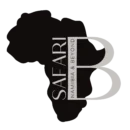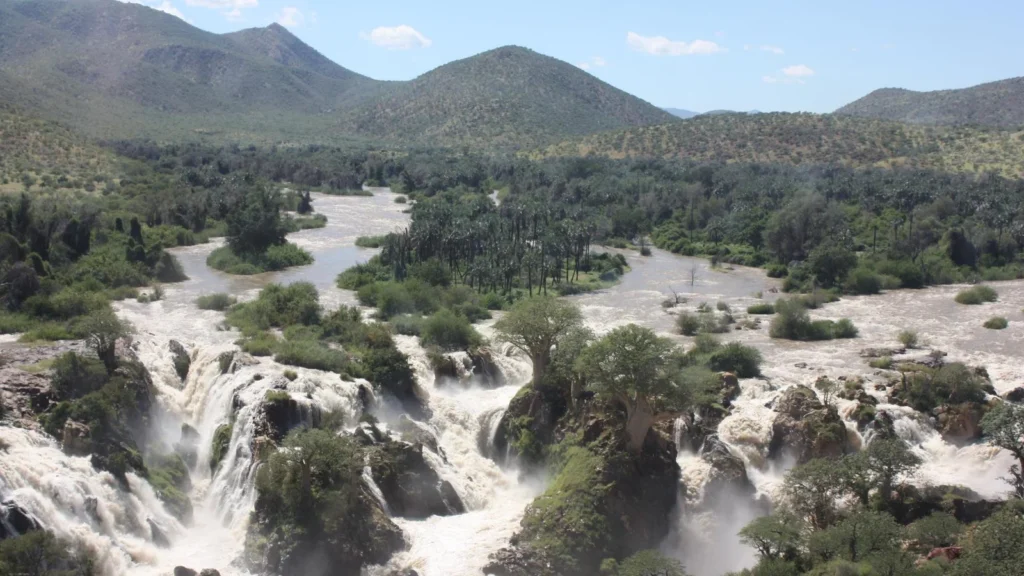




Duration
11 days
Tour Type
Self Drive Safari
Overview
The Extravagant Wildlife One has been designed specifically for the wildlife & safari lover.
Start off with a visit to the AfriCat Foundation in Central Namibia, making your way to Etosha National Park and then explore the amazing Caprivi Strip before crossing into Botswana ending with the ultimate wildlife experience in Chobe National Park.
Included/Exclude
- Accommodation – subject to availability
- Meals as mentioned
- Activities as mentioned
- 4×4 Car Hire (GPS, unlimited mileage, tyre & windscreen insurance, 2nd spare tyre)
- Vehicle collection fee for Katima Mulilo
- Shared road transfer from Katima Mulilo to Kasane
- Return airport transfers
- Travel package & digital travel documents
- Meet & greet on arrival
- Tips
- International air (to and from Africa)
- Air transportation, accommodation, meals & drinks not specified
- Tips / gratuities at all meals, lodge staff, drivers, pilots, guides, rangers & trackers etc.
- Personal items such as beverages, laundry, telephone calls, room service – unless specified as included
- Day use of room on arrival and departure from all properties. Generally, check-in is from 14h00/15h00 and check-out is by 10h00/11h00
- Visas
- Fuel for rental vehicle
- Porterage throughout
- Travel insurance – medical, emergency evacuation, cancellation, delays, loss of goods etc.
Tour Plan
Day 1 To Day 2 - Windhoek
Situated in Central Namibia, the cosmopolitan city of Windhoek serves as the capital of the country. It is home to an international airport and a plethora of restaurants, shops, entertainment venues and accommodation options. The city is clean, safe and well-organised, with a colonial legacy that is reflected in its many German eateries and shops, and the widespread use of the German language. Windhoek has an interesting mix of historical architecture and modern buildings, many of which are worth a look, including the Alte Feste an old fort, the 1896 Christuskirche Christ Church, and the more contemporary Supreme Court.
Day 2 To Day 3 - Okonjima Nature Reserve
Midway between the spectacular Etosha National Park and the capital city of Windhoek, lies the well-known Okonjima Nature Reserve. The 22 000 hectare nature reserve is home to AfriCAT, a carnivore sanctuary, which gives the captive cats a second chance to be released back into the wild and become completely independent hunters in a protected area right in the middle of commercial cattle farmland. Visitors can enjoy a stay at a variety of excellent accommodation options including everything from luxury villas to secluded camping. Don’t miss the opportunity to enjoy thrilling cat-tracking guided safaris, leopard-spotting, off-road night drives and learn about local San culture along the Bushmen trail.
Day 3 To Day 5 - Etosha National Park
Situated in northwestern Namibia, the Etosha National Park offers a premier game viewing experience. The park’s diverse vegetation ranges from dense bush to open plains attracting a variety of wildlife. Located in the heart of the park is the Etosha Pan – a shallow depression that covers an area of 5000 square kilometres. Dry and shimmering for most of the year, the pans fill up with water after seasonal rains, making it the perfect habitat for wildlife. In the dry season, the wildlife is attracted to the perennial springs and waterholes that makes for excellent game viewing. Visitors can look forward to world-class game viewing including a variety of large mammals such as lion, elephant, leopard, rhino, zebra, giraffe, a diversity of birdlife such as flamingoes and pelicans.
Day 5 To Day 7 - Caprivi West
Surrounded by Botswana, Angola and Namibia. Caprivi West forms part of the Caprivi strip that protrudes from the northeastern corner of Namibia. Acquired by the then German South West Africa in 1890, to provide access to the Zambezi River, Caprivi has been used as a point of politico-strategic military importance throughout history. Alongside a rich historical significance, Caprivi offers both a wealth of natural resources and serves as a haven for an abundance of wildlife, including the critically endangered African wild dog. The stips’ vast and flourishing natural landscapes make it a popular corridor for African elephant moving from Botswana and Namibia into Angola, Zambia and Zimbabwe. In contrast, its lush, swampy terrains make it the only place in Namibia where one can spot the majestic Nile crocodile and the mighty hippo. Caprivi is a paradise for adventure seekers and nature lovers with free-roaming wildlife and postcard-perfect areas. Activities including game drives, walking safaris, canoeing and fishing on its serene waterways are plentiful. Birdwatchers will be overjoyed as they keep an eye out for the 400 bird species that soar above.
Day 7 To Day 9 - Caprivi East
Situated on the northern edges of Namibia, East Caprivi or Itenge is situated in the corner of the Namibian panhandle known as the Caprivi Strip. This off-the-beaten-track destination is made up of vast floodplains, sparkling lakes and lush swamplands dotted with diverse wildlife and an array of bird species. Caprivi East is mostly river country, bounded by the Kwando, Zambezi, Linyanti, and Chobe rivers. The best time to spot a variety of game is the dry winter months of June to October when visitors can spot elephants, buffalo, hippo, zebra, kudu and impala, as well as crocodile, baboon and warthog. Caprivi East is an excellent destination for bird lovers to spot plovers, egrets, herons, and cranes.
Day 9 To 11 - Chobe National Park
Chobe National Park is situated in the far northeast of Botswana, bordered to the north by the mighty Chobe River. It is the second-largest national park in Botswana and features four distinct ecosystems: the Savuti Channel in the west; the Linyanti Swamps in the northwest; the arid hinterland in between and Serondela in the extreme northeast with fertile plains and thick forests. This diversity of habitats provides a sanctuary to an astonishing array of African wildlife, most notably the impressive, shifting migratory population of more than 50 000 elephants. Visitors are also likely to spot lions, leopards, hyenas, wild dogs, impala, waterbuck, kudu, zebra, wildebeest, giraffes, and warthog. The park is also famous for its wonderful riverboat safaris, making Chobe an essential destination for any avid safari enthusiast.


